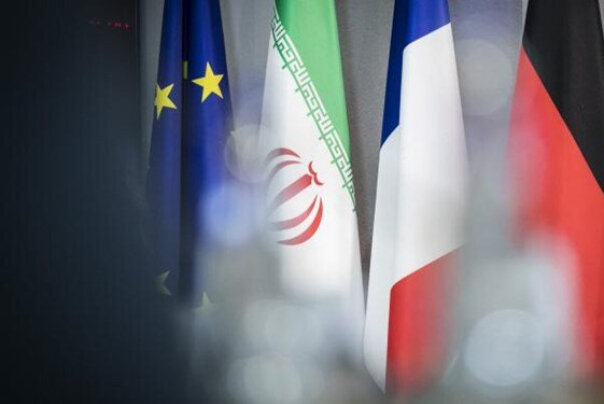Tehran insists it won’t back down from JCPOA demands

TEHRAN — In a conversation that lasted for two hours, Iranian President Ebrahim Raisi told his French counterpart that Tehran won’t back down from its demands regarding the sanctions-removal negotiations.
According to the president, issuing a resolution in the International Atomic Energy Agency Board of Governors was a crisis-stirring move aimed at creating pressure against the Iranian nation, which undermined political trust.
He also denounced the hostile actions and stances taken by the United States and European countries against Iran.
Meanwhile, an Elysee Palace statement noted that Emmanuel Macron encouraged his Iranian counterpart to make a clear decision regarding efforts to revive the JCPOA, the official name for the 2015 nuclear deal.
Macron stressed that the revival of the nuclear deal is still possible, provided it is done as soon as possible, according to the French readout of the Saturday phone call.
The statement also said that Macron expressed his disappointment over the course of the Iran nuclear deal talks that have been suspended for several months.
Nonetheless, according to Iran’s readout of the phone call, Macron indicated that his country will continue playing a part in bringing the JCPOA revival negotiations to a successful end.
During the call, Raisi emphasized the need for a prospective renewal of the multilateral deal in a way that Iran will reap its economic benefits.
The U.S., under Donald Trump, unilaterally quit the multilateral agreement in May 2018 despite the fact that deal is endorsed by UN Security Council Resolution 2231.
“The Islamic Republic of Iran believes that reaching an agreement on the JCPOA revival hinges on the full resolution of Safeguard issues and the provision of necessary guarantees, including continued adherence of the parties to the agreement and fulfillment of the economic interests of the Iranian nation,” the Iranian president pointed out.
Battling in a “negotiation campaign,” Iran has made it clear that it won’t take just any deal that the United States puts on the table.
Iran’s Foreign Minister Hossein Amir Abdollahian used the term “negotiation campaign” in a live talk show aired on Thursday night to describe the difficult battle his deputy and top negotiator Ali Bagheri Kani is engaged with.
During the talk show, Amir Abdollahian said, “We are now at a point where we have a ready text in front of us, and there is a consensus between the parties regarding more than 95 percent of its content, but there is still an important flaw in this text; and as we have stated many times, we must fully enjoy the economic benefits of this agreement.”
He added that Tehran doesn’t want to repeat the same mistake twice.
He is right. Why should Iran take a deal when it is more than likely that a next president tear it apart again? The United States must give Iran assurances that returning to the JCPOA means gaining “real and tangible” economic benefits that the people could feel. However, the Western media are doing their best in what is known in the politics as “the blame game.”
Western media is shifting the attention of the public towards Iran to make up for Washington’s indecision in regards to possible revival of the JCPOA. Tehran has made its demands very clear. Yes. A deal is on the table and more than 95% of the details have been ironed out, but the remaining differences are significant, and Washington is refusing to take any action that would prevent violation of the deal again.
“There is no doubt about the Islamic Republic of Iran’s determination to reach a good, strong and lasting agreement,” Amir Abdollahian told EU foreign policy chief Josep Borrell last Monday.
There is an incomplete deal on the table. If Washington wishes to complete the deal and return to the JCPOA, it must act swiftly to solve the few remaining differences.
Time is running out!
Leave a Comment